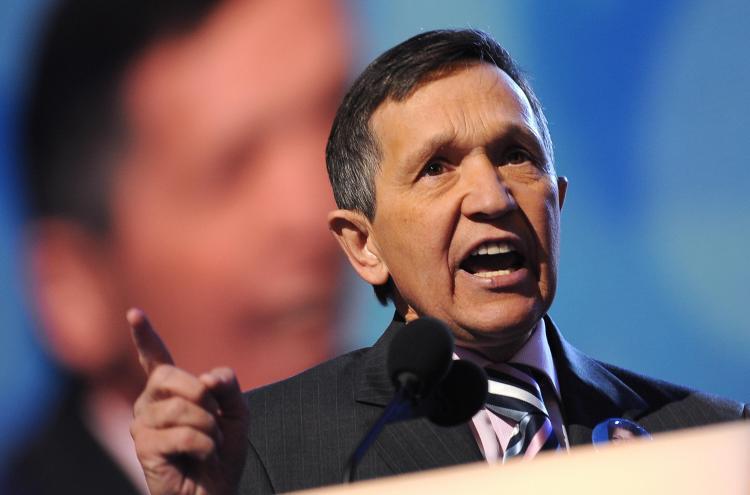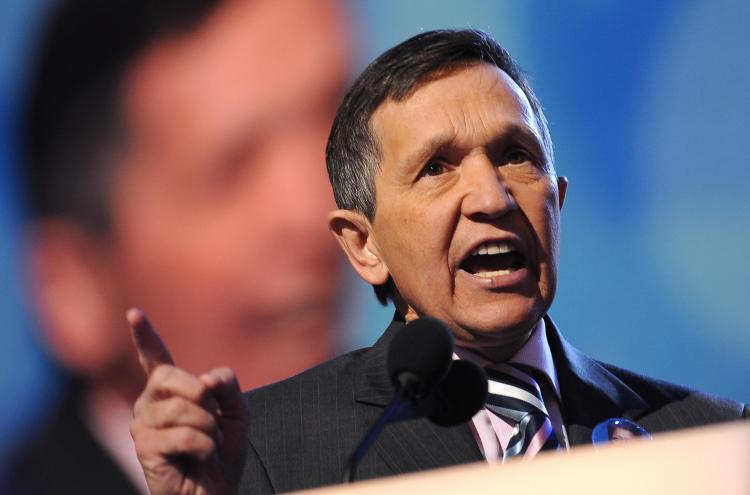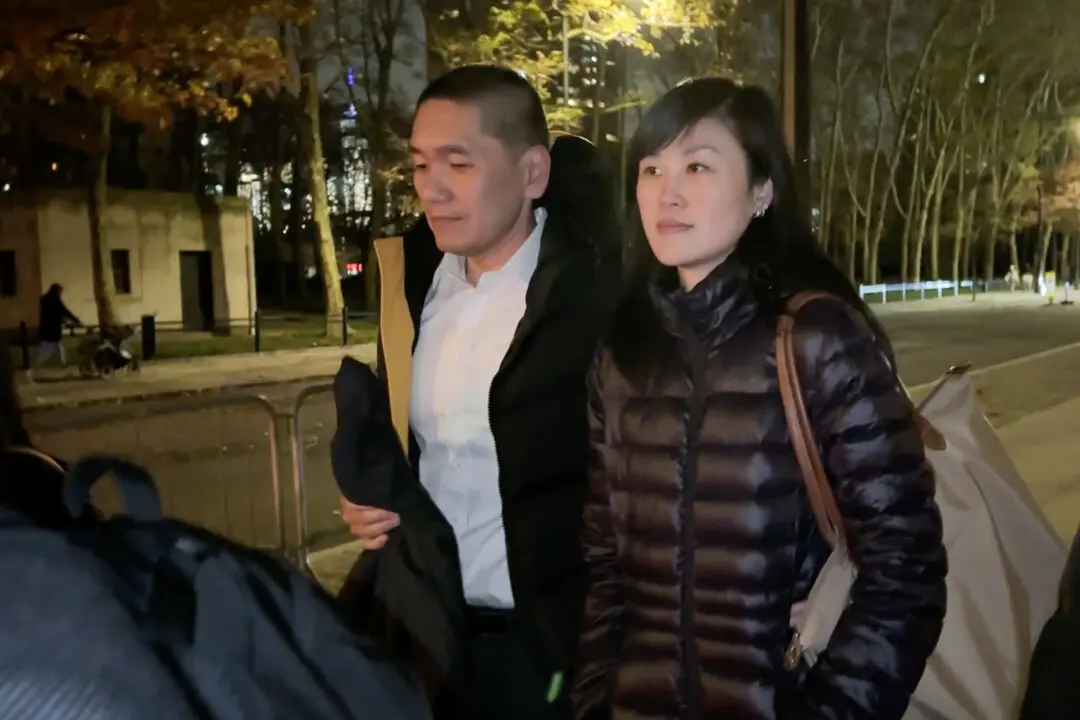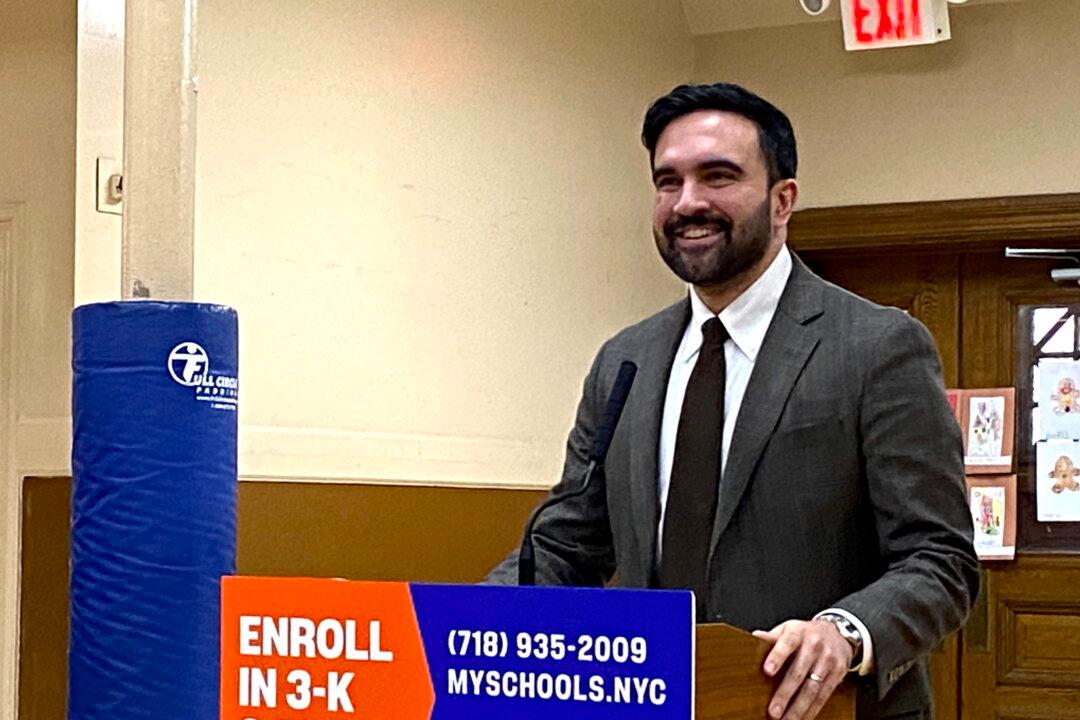A resolution to withdraw U.S. Armed Forces in Afghanistan within 30 days failed Wednesday in Congress. Congressman Dennis Kucinich (D-Ohio) sparked a debate on the issue when he introduced the resolution, which was cosponsored by 21 others.
The nonbinding resolution failed with 356 voting against and 65 voting for. The debate was an opportunity to explore members’ views on the issue separately from discussion about spending or appropriations legislation.
Speaking about the resolution, Kucinich said the executive branch had gone too far and it is time for Congress to “weigh in on the war.” He said it was a constitutional issue because the power to authorize war lies with Congress.
“We can’t afford this war,” said Kucinich in a video statement released on his Web site. He said that with 15 million Americans out of work, 47 million without health insurance, and 10 million who could lose their homes, “you would think it would be time for us to focus on things here at home.”
“America is ready to meet the challenges of global security,” he said, acknowledging the need to protect against terrorism, and also “to start taking care of things at home.”
California Congresswoman Jane Harman (D-Calif.) disagreed that immediate troop withdrawal is the answer. She said she too wants the U.S. military out of Afghanistan at the “earliest reasonable date,” but that accelerating Obama’s timetable “could take grievous risks with our national security.” The debate was recorded by cable channel C-Span.
Harman commended Kucinich for raising the Afghanistan debate, saying presidential powers had gone too far. She said the authorization Congress gave the president to go to war back in September 2001 has been “overused and abused as the basis for policy.”
Ranking Member of the Foreign Affairs Committee Congresswoman Ileana Ros-Lehtinen (R-Fla.) disagreed. She said the years of effort by American forces have forced al-Qaeda and Taliban forces into the mountains, forcing them to worry about their own survival, rather than plan attacks against the United States.
She said the current strategy to eliminate al-Qaeda in Afghanistan “is already producing dramatic success.”
Foreign Affairs Committee Chairman Howard Berman (D-Calif.) said it was good to debate the issue, but he could not support withdrawing troops without regard for the consequences. He said Obama has “left no stone unturned” or “issue unvetted”
in reviewing Afghanistan strategy and “I do believe this strategy of our president’s deserves support.”
In December 2009, President Obama announced the United States would deploy 30,000 more troops to Afghanistan to help build up Afghan security forces and solidify the Afghan government’s rule. According to that plan, troops will begin returning in July 2011.
On his March trip to the region Defense Secretary Robert Gates said that troop withdrawal may begin before the scheduled July 2011 date. According to RTTNews, he mentioned the possible change after touring a training center near Kabul; he said withdrawal will be “conditions-based,” and will begin no later than July 2011.
Congressman Patrick Kennedy angrily condemned the news media for focusing on Congressman Massa’s troubles to the exclusion of substantial issues such as war authorization.
The nonbinding resolution failed with 356 voting against and 65 voting for. The debate was an opportunity to explore members’ views on the issue separately from discussion about spending or appropriations legislation.
Speaking about the resolution, Kucinich said the executive branch had gone too far and it is time for Congress to “weigh in on the war.” He said it was a constitutional issue because the power to authorize war lies with Congress.
“We can’t afford this war,” said Kucinich in a video statement released on his Web site. He said that with 15 million Americans out of work, 47 million without health insurance, and 10 million who could lose their homes, “you would think it would be time for us to focus on things here at home.”
“America is ready to meet the challenges of global security,” he said, acknowledging the need to protect against terrorism, and also “to start taking care of things at home.”
California Congresswoman Jane Harman (D-Calif.) disagreed that immediate troop withdrawal is the answer. She said she too wants the U.S. military out of Afghanistan at the “earliest reasonable date,” but that accelerating Obama’s timetable “could take grievous risks with our national security.” The debate was recorded by cable channel C-Span.
Harman commended Kucinich for raising the Afghanistan debate, saying presidential powers had gone too far. She said the authorization Congress gave the president to go to war back in September 2001 has been “overused and abused as the basis for policy.”
Ranking Member of the Foreign Affairs Committee Congresswoman Ileana Ros-Lehtinen (R-Fla.) disagreed. She said the years of effort by American forces have forced al-Qaeda and Taliban forces into the mountains, forcing them to worry about their own survival, rather than plan attacks against the United States.
She said the current strategy to eliminate al-Qaeda in Afghanistan “is already producing dramatic success.”
Foreign Affairs Committee Chairman Howard Berman (D-Calif.) said it was good to debate the issue, but he could not support withdrawing troops without regard for the consequences. He said Obama has “left no stone unturned” or “issue unvetted”
in reviewing Afghanistan strategy and “I do believe this strategy of our president’s deserves support.”
In December 2009, President Obama announced the United States would deploy 30,000 more troops to Afghanistan to help build up Afghan security forces and solidify the Afghan government’s rule. According to that plan, troops will begin returning in July 2011.
On his March trip to the region Defense Secretary Robert Gates said that troop withdrawal may begin before the scheduled July 2011 date. According to RTTNews, he mentioned the possible change after touring a training center near Kabul; he said withdrawal will be “conditions-based,” and will begin no later than July 2011.
Congressman Patrick Kennedy angrily condemned the news media for focusing on Congressman Massa’s troubles to the exclusion of substantial issues such as war authorization.





